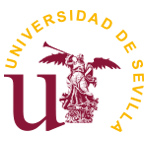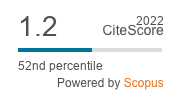La escuela, espacio de innovación con tecnologías
Palabras clave:
Innovación educativa, Nuevas tecnologías de la información y comunicación, desarrollo profesional, conocimiento profesional, cultura escolar- Educational innovation, ICT, profesional development, profesional knowledge, school cultureResumen
Si hay algo que caracteriza hoy día a nuestra sociedad, seguramente sea el cambio. Vivimos en una sociedad en la que el cambio forma parte de nuestra vida cotidiana. Hemos cambiado nuestra manera de relacionarnos, de comunicarnos, de trabajar, de comprar, de informarnos, de aprender. Pero los cambios no han venido sólo por el uso de aparatos tecnológicos. Podemos afirmar que vamos avanzando hacia una sociedad en red que busca formas de organización más flexibles, horizontales y eficientes. Una sociedad en la que el acceso a la información y en su caso al conocimiento se realiza a través de circuitos más abiertos, accesibles y democráticos de lo que eran posibles hasta hace algunos años. En este artículo analizamos la escuela como un especio de innovación con tecnologías. Para ello nos centramos en tres elementos de análisis: las personas que innovan, los contextos de la innovación y las propias innovaciones educativas.
Abstract
If there is anything that characterizes our society today certainly is change. We live in a society where change is part of our daily lives. We have changed our way of relating, communicating, working, shopping, researching and learning. But changes have not just come thanks to the use of technological devices. We are moving towards a networked society seeking more flexible horizontal and efficient organization methods. A society in which access to appropriate information and knowledge can be made through more open, accessible and democratic circuits than a few years ago. In this paper we analyze the school as a space for technological innovation. To do this we focus on three elements of analysis: people who innovate, the contexts of innovation and educational innovations themselves.
Descargas
Citas
AGUERRONDO, I. (2008). The Dynamics of Innovation. Why does it survive and what makes it function. En OCDE. Innovation to learn, Learning to Innovate, Centre for Educational Research and Innovation, pp. 175-203.
BEREITER, C. & SCARDAMALIA, M. (2008). Toward research-based innovation. En OCDE. Innovation to learn, Learning to Innovate, Centre for Educational Research and Innovation, pp. 67-91.
BORKO, H., & PUTNAM, R. (1996). Learning to teach. In D. B. a. R.
CALFEE (Ed.), (Vol. Handbook of Educational Psychology, pp. 673-708). New York: Macmillan.
BUCHMANN, M. (1984). The priority of Knowledge and understanding in teaching. In L. KATZ & J. RATHS (Eds.), Advances in Teacher Education (Vol. 29-50). Norwood: Ablex.
CARLES SIGALÉS JOSEP Mª MOMINÓ JULIO MENESES ANTONI BADIA (2008) La integración de internet en la educación escolar española. Situación actual y perspectivas de futuro, UOC, Telefónica http://www.uoc.edu/in3/integracion_internet_educacion_escolar/esp/informe.html
FULLAN, M. (2006). The future of educational change: system thinkers in action. Journal of Educational Change. N. 7, 113-122.
GROSSMAN, P. (1990). The Making of a Teacher. Teacher Knowledge and Teacher Education. Chicago: Teacher College Press.
HARGREAVES, A. & FINK, D. (2000). The three dimensions of reform. Educational Leadership 57(7), 30–34.
HARGREAVES, A. (2002). Sustainability of educational change: the role of social geographies. Journal of Educational Change, 3: 189-214.
HARGREAVES, A. & FINK, D. (2006). Estrategias de cambio y mejora en educación caracterizadas por su relevancia, difusión y continuidad en el tiempo. Revista de Educación, Nº 339, pp. 43-58.
HARGREAVES, D. (2008). System Redesign:a path to educational transformation. Paper presented at the Congreso sobre Innova, Madrid.
HARRIS, A. & MUIJS, D. (2003). Teacher Leadership. Improvement through empowerment? An overview of the literature. Educational Management and Administration, 31 (4): 437-448.
HORD, S.M. (1987) Evaluating Educational Innovation. New York, Croom Helm.
JONASSEN, D. et al. (2003). Learning to Solve Problems with Technology. A constructivist perspective, New Jersey, Merrill Prentice Hall
KOEHLER, M. & MISHRA, P. (2008). Introducing TPCK. En AACTE Commitee on Innovation and Technology. Handbook of Technological Pedagogical Content Knowledge (TPCK) for Educators, New York, Routledge, pp. 3-29.
LÓPEZ YÁÑEZ, J. (en prensa). Cambio sostenible en la educación: ¿qué lo hace posible? Revista Profesorado
MAGNUSSON, S., KRAJCIK, J., & BORKO, H. (2003). Nature, Sources, and Development of Pedagogical Content Knowledge for Science Teaching. In J. GESS-NEWSOME (Ed.), (Vol. Examining Pedagogical Content Knowledge. The Construct and the its Implication for Science Education, pp. 95-132). New York: Kluwer Academic Publisher.
MARCELO, C. (2002). Aprender a enseñar para la sociedad del conocimiento. Educational Policy Analysis Archives, 10(35) http://epaa.asu.edu/epaa/v10n35/
MARCELO, C. & VAILLANT, D. (2009). Desarrollo profesional docente. Madrid, Narcea.
MARTÍN, E. (2009). Profesorado competente para formar alumnado competente: el reto del cambio docente. En J.I. POZO Y M. DEL PUY
PÉREZ (Coords.). Psicología del aprendizaje universitario: la formación
en competencias, Madrid, Morata.
MISHRA, P. & KOEHLER, M. (2006). Technological Pedagogical Content Knowledge: A framework for teacher knowledge. Teachers College Record, Vo. 108, No. 6, pp. 1017-1054.
MORINE-DERSHIMER, G., & TODD, K. (2003). The Complex Nature and Sources of Teachers' Pedagogical Knowledge. In J. GESS-
NEWSOME (Ed.), (Vol. Examining Pedagogical Content Knowledge. The Construct and its Implication for Science Education, pp. 21-50). New York: Kluwer Academic Publisher.
NICHOLS, A. (1983). Managing Educational Innovations, London, Allen & Unwin.
OCDE. (2001). Schooling for tomorrow. What school for the future? Education and skills. Paris: Centre for Educational Research and Innovation.
OCDE. (2005). Teachers matter: attracting, developing and retaining effective teachers. Paris: OCDE.
PAJARES, M. (1992). Teachers´beliefs and educational research: cleaning up a messy construct. Review of Educational Research, 62, 307-332.
RICHARDSON, V. (1996). The Role of Attitudes and Beliefs in Learning to Teach. In J. SIKULA, T. BUTTERY & E. GUYTON (Eds.), (Vol. Handbook of Research on Teacher Education, pp. 102-119). New York: Macmillan.
SAWYER, R. K. (Ed.) (2006). The Cambridge Handbook of Learning Sciences, Cambridge, Cambridge University Press.
SAWYERS, R. K. (2008). Optimising Learning. Implications of Learning Sciences Research. En OCDE. Innovation to learn, Learning to Innovate, Centre for Educational Research and Innovation, pp. 45-65.
SHULMAN, l. (1992). Renewing the Pedagogy of Teacher Education: The Impact of Subject Specific Conceptions of Teaching. Paper presentado en el Simposium sobre Didácticas Específicas en la Formación de Profesores, Santiago de Compostela.
ZHAO, Y. et al. (2002). Conditions for classroom technology innovations, Teacher College Record, Vo. 104, No. 3, pp. 482-515.
Descargas
Publicado
Cómo citar
Número
Sección
Licencia
Revista Fuentes brinda acceso abierto inmediato a todo su contenido sobre el principio de que hacer que la investigación esté disponible de forma gratuita para el público para apoyar un mayor intercambio global del conocimiento.
De esta manera, el lector puede acceder a todos los contenidos de la revista desde el momento de la publicación sin coste ni obligación de suscripción.
Salvo indicación contraria, los artículos publicados en Revista Fuentes tienen licencia bajo el acuerdo de licencia internacional Attribution-NonCommercial-ShareAlike 4.0 International (CC BY-NC-SA 4.0). Los autores retienen los derechos de autor y se permite a terceros copiar, distribuir y hacer uso de los trabajos siempre que cumplan con los términos y condiciones establecidos por dicha licencia
- citar la autoría y la fuente original de su publicación (revista, editorial y URL de la obra).
- No se usen para fines comerciales.
- Si remezcla, transforma o crea a partir del material, deberá difundir sus contribuciones bajo la misma licencia que el original.
Puede encontrar más información al respecto en https://creativecommons.org/licenses/by-nc-sa/4.0/deed.es.
En el caso de trabajos publicados bajo una licencia diferente a la anteriormente mencionada (CC BY-NC-ND o CC BY-NC) los autores retienen los derechos de autor, permitiéndose su copia, distribución y uso de los trabajos siempre que cumplan con los términos y condiciones de la licencia correspondiente. Puede encontrar más información al respecto en https://creativecommons.org/licenses/?lang=es.










